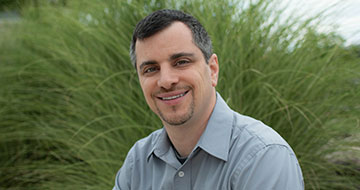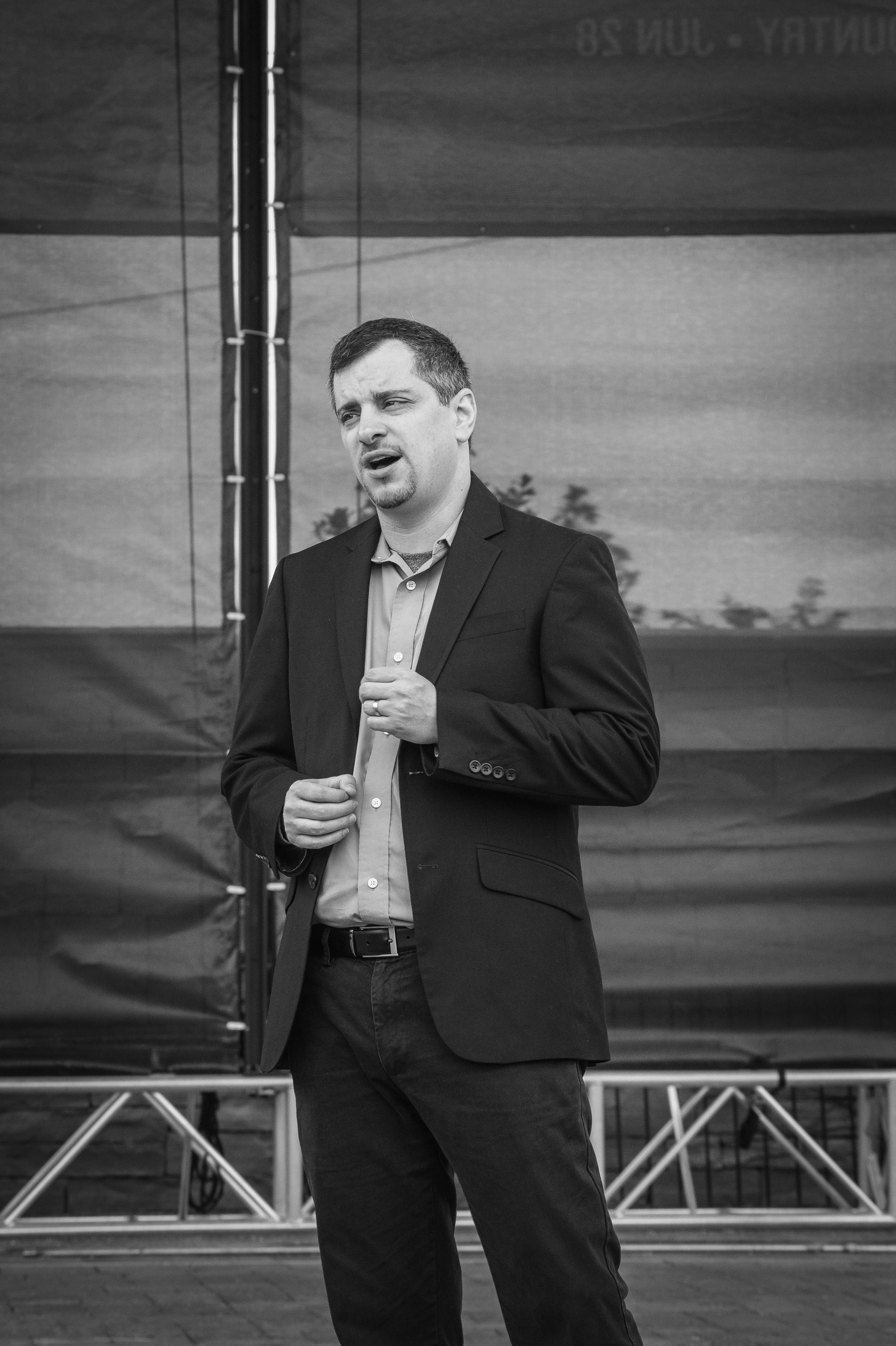Posted on June 24, 2024 by Amanda Cerreto

Richard Shuster, Psy.D, MSW
Clinical psychologist Richard Shuster, like many others in his profession, is driven to help people. Unlike many others, however, he wasn’t always that way.
“I told everybody who would listen that I was going to be the next Bill Gates,” he said. “I was going to have a private jet, a yacht, all the great stuff.” Obsessed with status and possessions, and with the skills and smarts that could back it up, it seemed that he was well on his way.
Until a left-hand turn on an ordinary drive to dinner resulted in a major accident that left Shuster with a broken spine, torn neck ligaments and more.
While he recovered from his injuries and returned to work, none of the flash and style felt right anymore. And so, he chose to walk away from his business, knowing he needed more, but without a clue about where to start.
Because of his background in cybersecurity, Shuster was invited to speak to several PTA meetings to provide tips and information on keeping kids safe on social media.
“It was powerful, because I had no agenda. I wasn’t trying to sell stuff – I was just doing something to help other people,” he said. “That’s the first time I felt good in a long time.”
 Shuster continued speaking to schools and eventually was asked to be mentor at a middle school. The guidance counselor he worked with suggested that Shuster pursue a social work degree, and what better place to do so than UTSA – a university that had just started a brand new Master of Social Work program?
Shuster continued speaking to schools and eventually was asked to be mentor at a middle school. The guidance counselor he worked with suggested that Shuster pursue a social work degree, and what better place to do so than UTSA – a university that had just started a brand new Master of Social Work program?
“I still didn’t really know what I wanted to do with my life, but I felt like I was getting closer to something,” he said.
Shuster met with Dennis Haynes, the founding chair of the UTSA Department of Social Work, and explained his story. While he didn’t quite have the grades from his undergraduate program, and he was a decade out of school, Haynes heard his passion and decided to give him a chance.
“The faculty and our first class were laying the foundation for a really beautiful experience,” he said. “I am a different person having come out of UTSA than I was when I went into it.”
“UTSA was my foundational rock,” said Shuster, who has since gone on to earn his doctoral degree and launched several business ventures, including a very successful podcast. “If not for Dennis Haynes, where would I be? My ability to help people that at a scale I could have never found is all because he took a chance on me.”
“At UTSA, you weren’t a name or a number,” he said. “You were a person. You were heard by your peers and your faculty.”
Today, Shuster is CEO of Your Success Insights, a company using predictive algorithms to help individuals address mental health challenges, host of The Daily Helping Podcast, and a keynote speaker.
His lived experiences drive his mission to help people become the best versions of themselves and as a result, make the world a better place. He credits his social work education for a lot of the tools he uses in his daily life and work.
“Social work informs what I do all the time,” he said. “I'm the only company in the world that has an assessment that addresses the impact of racial discrimination on addiction. That wouldn't have happened if not for this program.”
It may seem counterintuitive for someone who works so deeply with data and cyber security, but Shuster would recommend social work to anyone that is searching for a deeper connection to people.
“Just wanting to help people isn’t always enough,” he said. “It has to be deeper than that. Why you want to help people is more important than the desire to help people – if you understand your why, then that can directly shape how you have impact in this world.”

